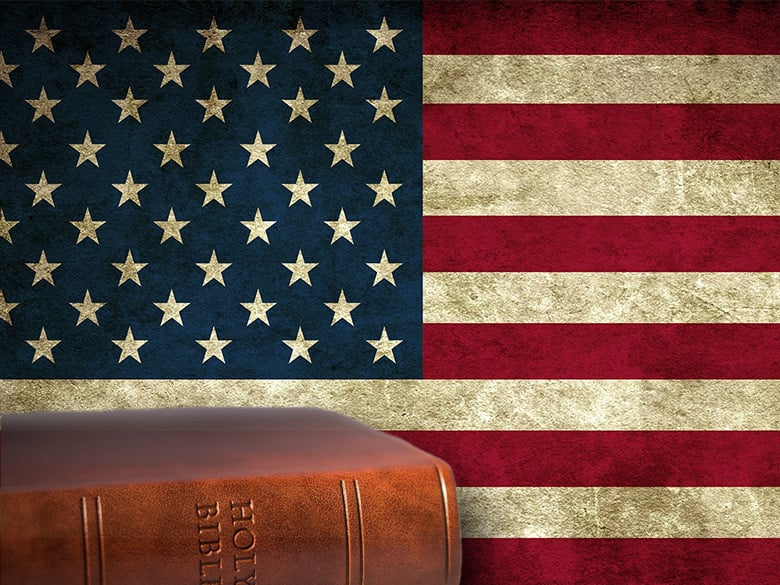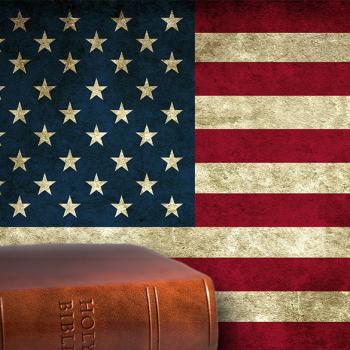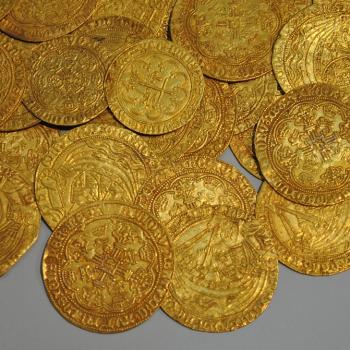
There is a lot of the Bible which talks about the necessity of God being in the laws. The Hebrew Scripture blends history, politics, and divine intervention in this way. While I think this is a literary tool of an ancient people, more conservative and fundamentalist readings can lend to a Christian Nationalist interpretation.
It’s hard to find much in the New Testament that promotes Christian Nationalism. Jesus is recorded as saying “give Caesar what is [his], and give God what is God’s”. I read this as absurdism – after all, what’s left to give to Caesar after giving to God what is owed? Either way, the case for Christian Nationalism is hard to make off of the Gospels.
July is a time to remember America and its foundation. Many will participate in the liturgy of America – barbecue, fireworks, American flags on shorts. You know what I mean. Before we get ahead of ourselves, I’d like to talk about one of the few stories that shows up in all four Gospels.
Barabbas the Zealot
“So the governor asked again, ‘Which of these two do you want me to release to you?’ The crowd shouted back, ‘Barabbas!’ Pilate responded, ‘Then what should I do with Jesus who is called the Messiah?’ They shouted back ‘Crucify him!’ ‘Why?’ Pilate demanded. ‘What crime has he committed?’ But the mob roared even louder, ‘Crucify him!'”
– Matthew 27:21-23 NLT
Jesus has been arrested and is brought before Pilate for sentencing. It was customary to release a prisoner during Passover. The crowd (both Pharisees and commoners) were given a choice: release Jesus or Barabbas? We know the people chose to send Jesus to die and Barabbas to go free.
Let’s Get a Little More Context
This story is recorded in all four Gospels – one of the few to do so. What we don’t usually hear during a Good Friday or Easter Sunday sermon is who Barabbas was. He was a zealot – a violent crusader for the Jewish people of the time. Luke describes him and his charge in chapter 23 verse 19. “Barabbas was in prison for taking part in an insurrection in Jerusalem against the government, and for murder” (NLT).
In true literary fashion, this comparison was set up earlier in the story. At the end of chapter 22, Jesus is brought before the Council and found guilty of claiming to be the Messiah. This was the first step in the process. Once the Jewish Council found him guilty, they led him to Pilate, the Roman Governor of Judea. He has the power of the State to convict and serve the death sentence.
Then, at the beginning of chapter 24, the Council tells Pilate that, in addition to claiming to be Messiah, Jesus was teaching his followers to not pay taxes. Both claims were serious against Rome – but they were the same crimes that Barabbas was accused of.
What Now?
Barabbas was one of many Jewish rebels against Rome during the Roman rule. However, Barabbas chose to use violence to fight against the powers and set Israel back to glory. Jesus’ kingdom is not that of this world – it is not built on violence. Jesus has shown us who God really is – as sacrificial and loving to those who reject him.
Violence is the way of the powers of the world, but it cannot be the way of Jesus. This is what looks so foolish to the world. The idea that the Messiah would die at the hands of the empire instead of slaughtering the oppressor is a radial shift in what it means to be holy. The early Church – jailed and murdered while singing and not resisting – is what our model of a Christian life is.
How can Jesus and Christian Nationalism be compatible? Wouldn’t a Christian nation eliminate its military? Can a Christian nation allow people to be unhoused and hungry? Who are the ambassador’s of Jesus in America today?













